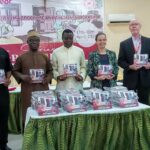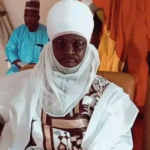
The Federal Government’s 2018 budget proposal of N8.61 trillion was delivered by President Muhammadu Buhari to a joint session of the National Assembly in Abuja on Tuesday last week, November 7. There was a promise last year to submit these estimates in September so that the National Assembly will pass it into law latest in December and for it to come into effect on January 1. As things stand, this schedule may not be kept this year.
The budget estimate is made up of N3.49 trillion for recurrent and N2.41 trillion for capital expenditure. Although capital vote’s share is an improvement over what it was for a long time, it is short of the APC government’s promise to reverse the ratio and ensure that capital exceeds recurrent spending. The 2018 budget, tagged “budget of consolidation’’ is geared towards consolidating the country’s emergence from deep economic recession. It is 16 percent higher than last year’s budget and is based on crude oil benchmark price of $45 per barrel, estimated daily production of 2.3 million barrels, exchange rate of N305 to one dollar, a 3.5% annual economic growth rate and an inflation rate of 12%.
Economic experts have already said that some of these budget benchmarks are realistic but others are not. For example, $45 per barrel price looks sensible at a time when the international price of crude oil has topped $64. Yet, oil prices are volatile and could come crashing down steadily or with little notice. More problematic is the 2.3 million per day production target which is highly dependent on peace in the Niger Delta region. At present oil production is close to that target but the federal government must continue with its efforts to sustain the peace through a mixture of higher spending on the Niger Delta amnesty and other programmes as well as strong arm military efforts.
The naira to dollar exchange rate has also been stable for most of this year and Central Bank of Nigeria [CBN] could easily sustain its regular intervention to increase liquidity in the forex market if oil prices remain high. The inflation rate target of 12% also looks realistic because inflation has been falling from a high of 18% two years ago to 15% at present. What does not appear to be realistic is the projected economic growth rate of 13%, coming so soon after we experienced five straight quarters of negative growth rate. Even though we are now technically out of recession, this was achieved with growth figures in fractions of one percent.
Other areas in which experts have expressed worry are debt service and borrowing. Fully one quarter of the budget will go to debt service. The more of it that will go to local debt service, the better because that will spur economic activity in the country. It is foreign debt service that will rob the economy of so much resources. To that extent, it is also worrisome that we must borrow so much to finance the budget deficit which could bring back the debt trap from which we so painfully exited in 2005. The least we expect the government to do is to ensure the borrowing goes to finance key social and infrastructure projects that will spur the economy and improve our human development quality through health and education.
Luckily, the president mentioned many such projects that, if faithfully implemented, would give a big boost to economic and social activities in this country. These include N9.8bn voted for the Mambilla Hydro-Power project, N12bn counterpart funding for transmission lines and substations; N35.41bn for the National Housing Programme; N10bn for the Second Niger Bridge and N300bn for the construction and rehabilitation of some strategic roads. Also much awaited by Nigerians are the promise to establish seven tertiary health institutions across the country through partnership with Sovereign Wealth Fund and private sector investors. Very highly anticipated are N150 billion social intervention programs; completion of the East-West road; enhanced spending on various Niger Delta programs through the Presidential Amnesty, Niger Delta Ministry and Niger Delta Development Commission [NDDC], as well as continued efforts in the North East to eradicate insurgency, rehabilitate the victims and ensure the return of Internally Displaced Persons [IDPs] to their homes.
In all respects the key word here is: implementation. Ahead of President Buhari’s trip to the National Assembly, some PDP legislators had even planned a protest, alleging that only 12% of this year’s capital vote was released. Year after year, low level implementation has been the bane of federal budgets. Delay in preparing the budgets is a factor; delay in passing them into law is a second factor, and this year we also saw a third factor, delay in signing the budget into law long after the National Assembly passed it. On top of all those there is the very cumbersome procurement procedure and the equally tardy release of funds by the Finance Ministry. On the same day that Buhari took the budget to the National Assembly, Vice President Yemi Osinbajo said at a Stakeholders Engagement Forum on the Ease of Doing Business that “spending nine months on different budget-related processes before projects are carried out will not lead to a turnaround in the economy.”
What is clear is the due process mechanisms put in place to protect public funds from thieving officials and contractors have backfired in the sense that they have contributed to poor implementation of budgets. A delicate balance must be found between the need to protect public funds and the imperative of ensuring efficient and timely implementation of budgets. Otherwise, the budget ritual will soon become meaningless when we find that it never gets implemented to our satisfaction.




